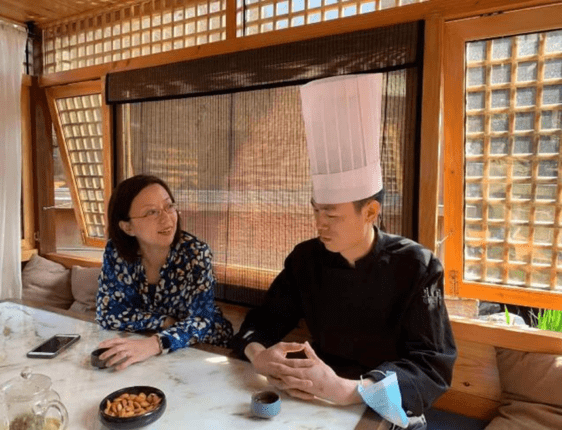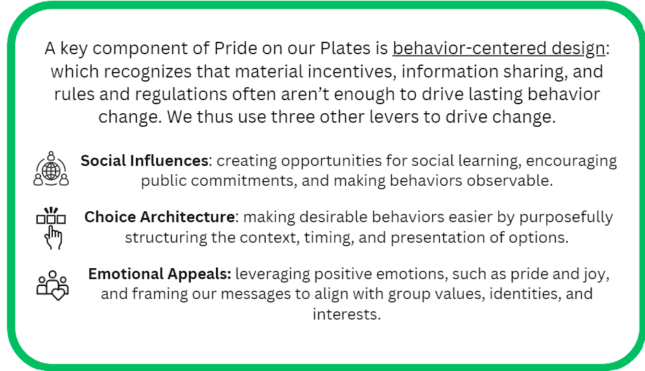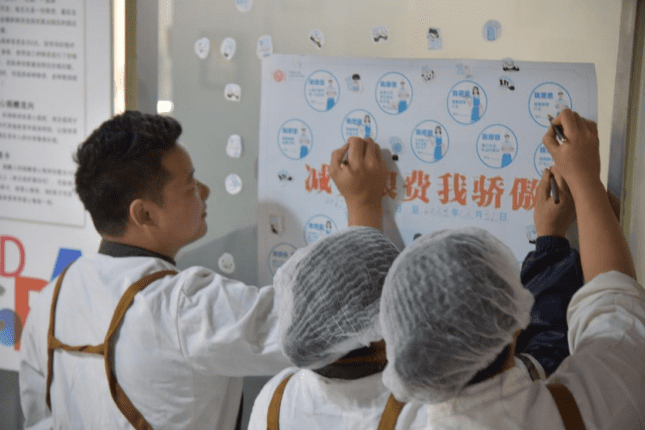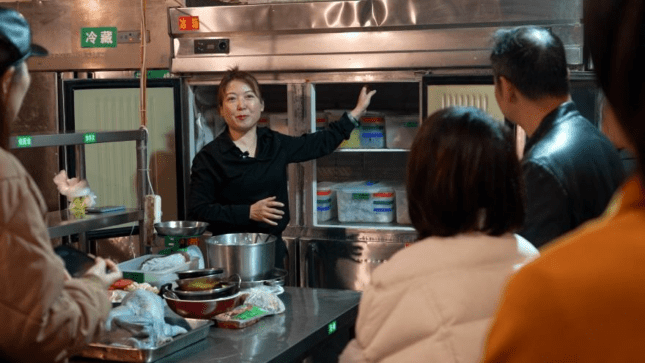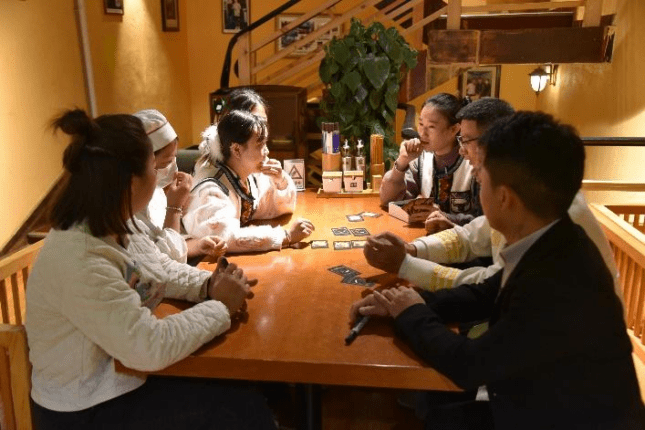-
Tackling Food Waste in China’s Restaurants
Back in 2020, Shiyang Li at Rare visited restaurants across China to interview over 30 different owners and staff about the attitudes, beliefs, and everyday behaviors that contribute to food waste. Similar to global trends, food waste in China remains a significant challenge. A 2020 survey found restaurants in Chinese cities wasted at least 34 million tons of food every year, which can feed as many as 49 million people.
China’s 2021 landmark new law against food waste highlighted the national ambition to tackle food waste. As an expert in designing behavior change programs in the country, the Rare team believes ambitious behavioral change programs could help China lower its food waste footprint.
Against this background, Rare joined “Pride on our Plates” – a project led by the Chinese NGO Shenzhen One Planet Foundation that aimed to help support micro, small and medium-sized enterprises (MSMEs) in reducing food waste. We mainly focused on small and medium restaurants.
Understanding the Scale of the Problem
When carrying out research to understand the problem, we found major misperception gaps around food waste in restaurant operations. According to the initial research we conducted, some 87% of small and medium restaurant owners/senior managers believed food loss and waste in their business was “less than the average restaurant.”
We realized that our behavior change interventions needed to be supported by quantitative data on food waste. Therefore, one of our first steps was to get restaurants recording and monitoring food waste on a daily basis. This helped restaurants recognize the scale of the problem (which was typically underestimated) and track progress as they made changes.
Box 1. An Innovative Approach to Tackling Food Waste in China
During an interview with a restaurant owner, he claimed the best way to motivate other restaurant owners was simple – “you just need to tell them that it can save money – that’s enough!”
We then asked about his motivations to run this restaurant. He talked passionately about how he quit a previous job to run this restaurant in order to inherit the traditional recipes passed down through generations in his family.
From the perspective of behavioral science, this is consistent with the finding that individuals believe others are motivated by material incentives, while their own motives are more driven by spiritual or higher-level pursuits.
Throughout the project we wanted all restaurant staff to feel their individual efforts are part of a bigger, collective effort. We created public ‘pledge’ cards and posters for staff to showcase their unique role in combating restaurant food waste, leaning heavily on the role of social influence in driving behavior change.
Chinese restaurant staff signing their public pledge cards on a poster named “I am proud of reducing waste”
Building a Community to Inspire Change
“Flower Rhyme” Restaurant in Kunming, Yunnan joined the project as a pilot restaurant. The founder of this restaurant uses Yunnan’s local specialty flowers to make delicious dishes, which are very popular among customers.
The restaurant introduced a series of measures, such as staff pledge posters and weekly team meetings with a food waste focus to empower staff to identify solutions.
Ms. Pi Yunhong describes how ingredient labeling can help better manage ingredient stock
Restaurant owner Pi Yunhong said, “I am surprised to see that staff are seeing the restaurant more like a family. They come up with ideas to reduce food waste, but also propose many new green actions, such as using tea residue as compost, collecting ice from the refrigerator to use for watering plants. During peak dining hours, when the waiters are too busy, the kitchen staff will take the initiative to help pass the dishes and pour water for customers, which was unimaginable in the past.”
In a restaurant’s fast-paced environment, I saw that food waste was often generated through simple actions carried out at speed. We thus helped restaurants introduce simple waste preventative solutions like cups or spoons tailored to portion size, or improved labels that make it easier for staff to identify food nearing expiration. This can reduce day-to-day food waste and make work easier for busy kitchen staff at the same time.
Taking a step away from traditional training and lectures, we also designed an innovative game set for restaurant staff to learn and discuss food waste solutions that staff found more appealing. For instance, “Master Chef Werewolf” is a popular card game adapted for restaurants, where each member of the kitchen staff is assigned a unique superpower and must work together to identify and eliminate the sources of food waste.
Staff of Yun Nan Dao Rice Noodle restaurant playing the “Master Chef Werewolf” game.
A Pathway Forward
We currently support 20 small and medium restaurants in reducing food waste through a structured pilot program, which offers tailored support to develop and implement some of the approaches mentioned above. Early data has been promising: on average, participating restaurants have seen a near 20% reduction in food waste in comparison to baseline data collected at the start of the pilot. Since the implementation of the Anti-Food Waste Law, there has been an increasing demand from the government for incorporating innovative and practical solutions into the practical guide and regulations. As we look forward, scaling our successes will require collaboration with government, associations, and broader recognition of the power of behavior change, extending our efforts beyond medium and small restaurants to address food waste in other high-impact areas.
This article is part of a Wilson Center-Ohio State University Cultivating US and Chinese Climate Leadership on Food and Agriculture project.
Shiyang Li is the founder and director of Rare China Center for Behavior and a seasoned leader committed to catalyzing positive change by applying behavior science to environmental challenges. In “Pride on our Plates” project, Shiyang works closely with Rare Europe to conduct Behavior Centered Design to develop tools for restaurants across China to combat food waste.
Sam Gray is a manager in Rare’s Europe office. Representing the European project partner, Sam has been closely involved in the delivery of Pride on our Plates, and works with Rare’s Center for Behavior and the Environment to build new projects that place behavior change at their core.
Top Photo: Courtesy of the Rare China Center for Behavior. Shiyang Li, from Rare China Center for Behavior, conducted interviews to gain a better understanding of the everyday values, belief and attitudes of MSME staff.
All Other Photos: Courtesy of the Rare China Center for Behavior.
Sources: fao.org, futuredirections.org, OECD, rare.org, switch-asia.edu, worldvision.orgAcknowledgements & Disclaimer: Pride of Our Plates is supported by the EU “SWITCH-Asia” program and delivered in partnership with Shenzhen One Planet Foundation and the WWF Beijing office. The content and opinions expressed herein are those of the author (Rare) and do not necessarily reflect the position or policy of the EU or SWITCH-Asia and no official endorsement should be inferred.
For more about Rare’s 50 years of work as a global leader driving social change for people and nature and Rare’s Center for Behavior & the Environment visit https://rare.org/
 A Publication of the Stimson Center.
A Publication of the Stimson Center.

